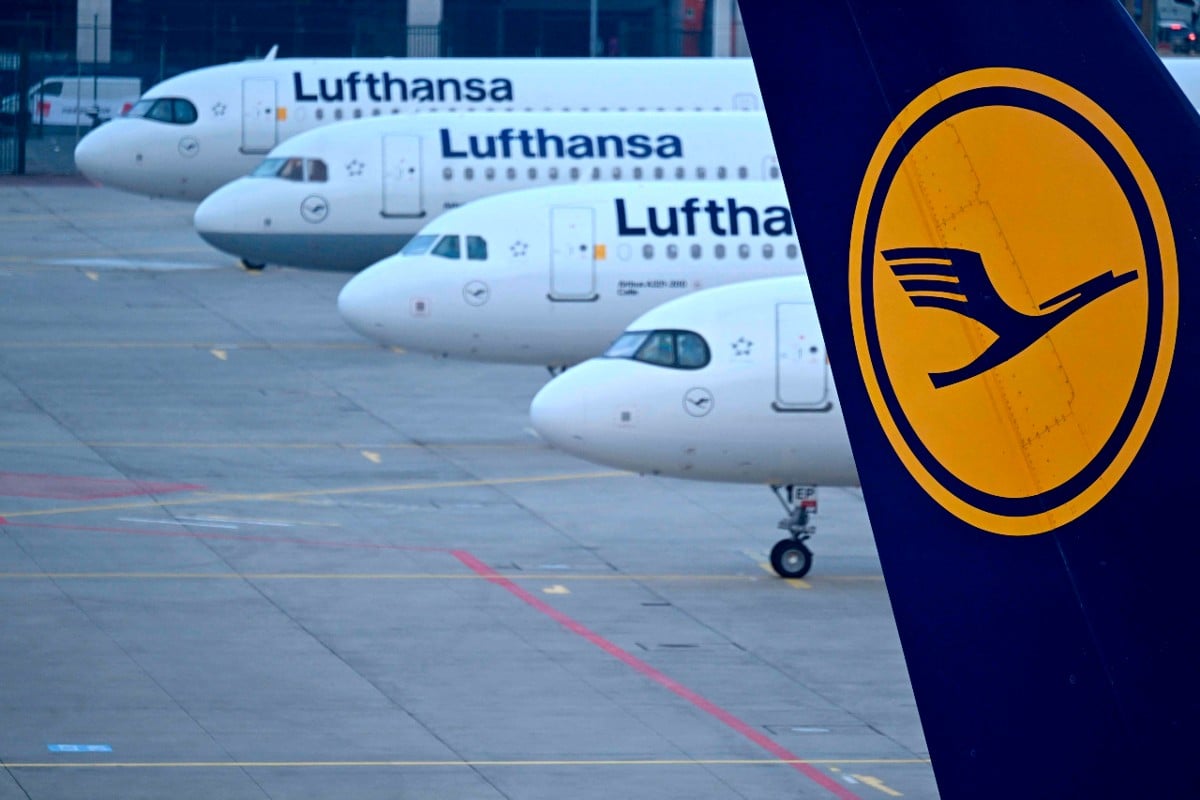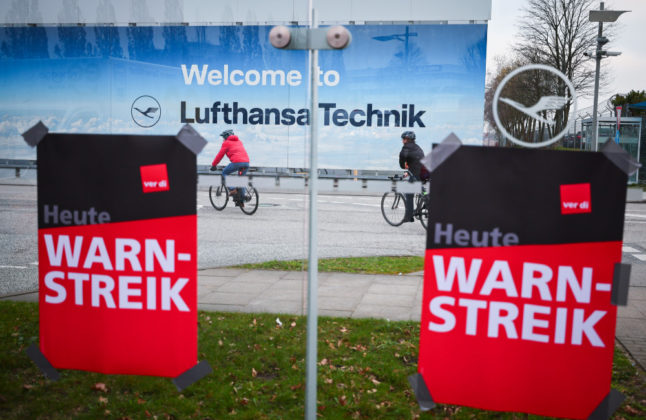After five unsuccessful rounds of negotiations and several waves of warning strikes over the past few months, mediators stepped in on Monday in a last ditch attempt to resolve the dispute between airport ground staff and their employer Lufthansa.
Many hope that, if successful, strikes can be averted over the upcoming four-day Easter weekend. On Tuesday, private sector airport workers called a peace truce over the Easter weekend.
How likely is it that a compromise will be reached in the coming days between Lufthansa employees and their employee?
What is the conflict about?
Verdi is calling for 12.5 percent more money for the approximately 25,000 Lufthansa ground staff over a period of one year.
The company has offered 10 percent for a term of 28 months, plus an inflation compensation bonus of €3,000. Yet the offer so far hasn’t been enough to appease Verdi.
“While Lufthansa reports good results and bonuses for board members will be increased substantially…. employees on the ground, with hourly wages of €13 in some cases, no longer even know how to make ends meet in the most expensive cities in Germany,” said Verdi negotiator Marvin Reschinsky amid a strike earlier this month.
READ ALSO: Germany’s Lufthansa more than doubles profit as strikes cast shadow
How does arbitration work?
In order to resolve a deadlocked wage dispute in Germany, the parties involved can agree on arbitration. One or more arbitrators are appointed from an independent outside source. A peace truce is then declared during the negotiations, meaning that no Lufthansa strikes can take place between Monday and Thursday, the day which the arbitration ends.
The Verdi trade union emphasised that it would not take part in arbitration lasting several weeks or even months, meaning that a compromise needs to be reached by Karfreitag (Easter Friday).
Who are the arbitrators?
Both sides have each appointed their own arbitrator with experience in resolving collective bargaining disputes. Lufthansa has called on the former head of Germany’s Federal Labour Agency, Frank-Jürgen Weise.
The union has opted for Thuringia’s state premier Bodo Ramelow (Die Linke). A former trade unionist, Ramelow led the collective bargaining dispute at Deutsche Bahn in 2015 and 2017.

What are the chances of success?
At least Lufthansa was optimistic, saying that the current approach can be seen as a sign of mutual expression of willingness to find a solution together.
“We now want to clarify the outstanding points together with the help of arbitration in order to reach an agreement,” said Lufthansa Chief Human Resources Officer Michael Niggemann.
READ ALSO: German train drivers union halts strikes to negotiate
Verdi has also signalled it wants to reach a compromise – for its workers and the the general public. “We want passengers to get from A to B easily during the Easter holidays and families to be able to go on their well-deserved holidays,” Reschinsky said.
A similar signal was given by train drivers union GDL, who are also in the midst of negotiations with employer Deutsche Bahn, potentially also averting strikes over the Easter weekend.
What happens if the arbitration fails?
In that case, there is a very real threat of an indefinite strike by ground staff at the airline.
Theoretically, a strike would be possible from Easter Friday. This could take place without interruption, “but also for several weeks at a time,” as Verdi negotiator Reschinsky explained. Previously the union voted on allowing unlimited strikes, should they decide for them to be unnecessary.
“This would make Lufthansa an unsafe means of transport,” he said.
His words echoed those of GDL boss Claus Weselsky, who in February emphasised that ‘rail is no longer a reliable means of transport’ following an announcement of unlimited strikes which would be declared with very little warning.
Could there be other airport strikes in Germany?
The Lufthansa offshoot Eurowings is not directly affected by the strikes, and there is currently no threat of action at other popular airlines in Germany such Condor, Tuifly or Ryanair.
However, Lufthansa’s holiday flight subsidiary ‘Eurowings Discover’, which only flies from Munich and Frankfurt, has still not reached an agreement on the collective labour agreement, meaning strikes are not off the table.
Those travelling between Frankfurt and Munich to Valencia in Spain will likely see their flights cancelled due to strikes planned over Easter weekend.
READ ALSO: What passengers in Germany need to know about the latest airport strikes



 Please whitelist us to continue reading.
Please whitelist us to continue reading.
Member comments